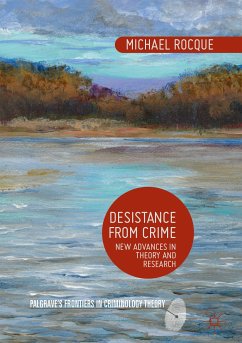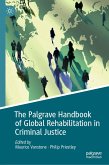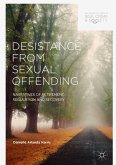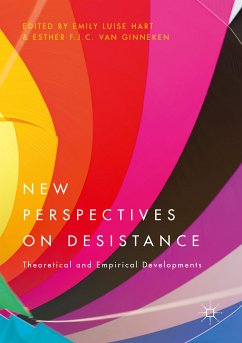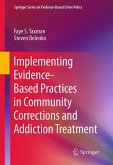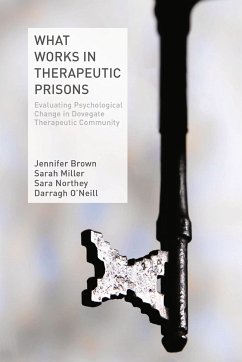This book represents a brief treatise on the theory and research behind the concept of desistance from crime. This ever-growing field has become increasingly relevant as questions of serious issues regarding sentencing, probation and the penal system continue to go unanswered. Rocque covers the history of research on desistance from crime and provides a discussion of research and theories on the topic before looking towards the future of the application of desistance to policy.
The focus of the volume is to provide an overview of the practical and theoretical developments to better understand desistance. In addition, a multidisciplinary, integrative theoretical perspective is presented, ensuring that it will be of particular interest for students and scholars of criminology and the criminal justice system.
Dieser Download kann aus rechtlichen Gründen nur mit Rechnungsadresse in A, B, BG, CY, CZ, D, DK, EW, E, FIN, F, GR, HR, H, IRL, I, LT, L, LR, M, NL, PL, P, R, S, SLO, SK ausgeliefert werden.
"This book will serve practitioners, academics, students and policymakers well, especially those who are in need of brushing up on their knowledge of all things desistance. Time spent reading this book would be an expedient way of getting a handle on the complex field of desistance research." (Jake Philips, Probation Journal, 2018)
Es gelten unsere Allgemeinen Geschäftsbedingungen: www.buecher.de/agb
Impressum
www.buecher.de ist ein Internetauftritt der buecher.de internetstores GmbH
Geschäftsführung: Monica Sawhney | Roland Kölbl | Günter Hilger
Sitz der Gesellschaft: Batheyer Straße 115 - 117, 58099 Hagen
Postanschrift: Bürgermeister-Wegele-Str. 12, 86167 Augsburg
Amtsgericht Hagen HRB 13257
Steuernummer: 321/5800/1497
USt-IdNr: DE450055826
Bitte wählen Sie Ihr Anliegen aus.
Rechnungen
Retourenschein anfordern
Bestellstatus
Storno

